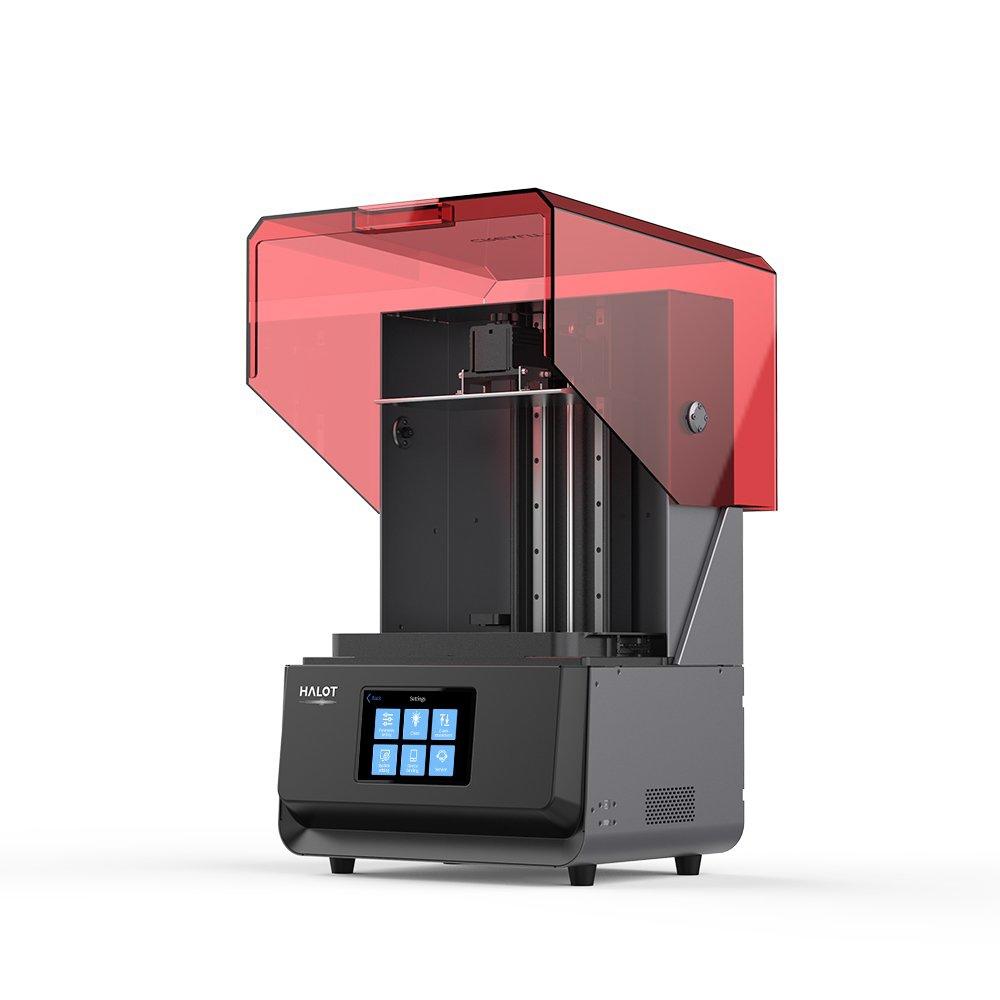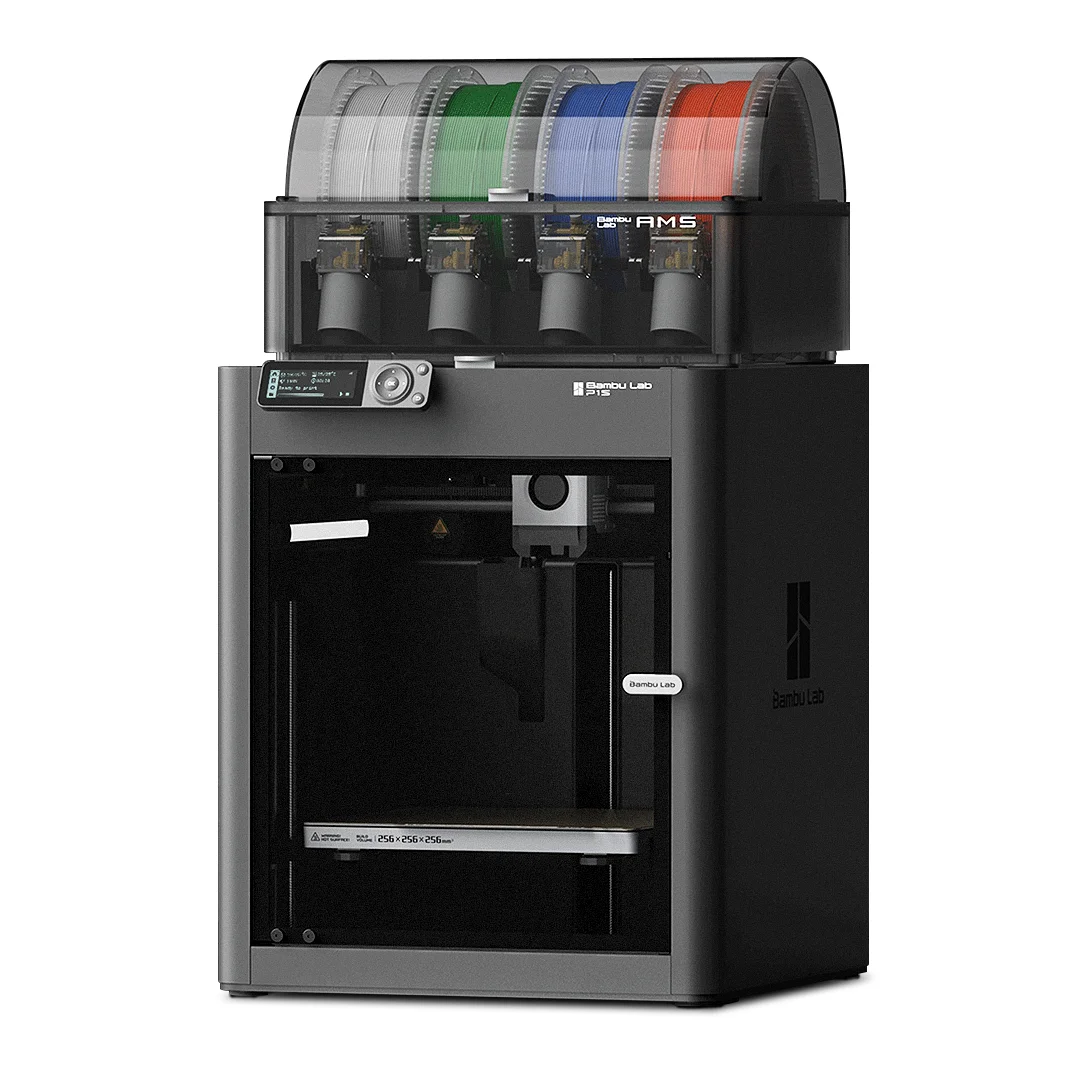Compare Halot Max vs P1S
Comparison between the best 3D printers
Choose the best 3D printer at the best price. The cheapest 3D printers are here.
Buy a 3D printer here with 3D Fila.
 |
 |
|
| Model | Halot Max[BUY Halot Max] |
P1S[BUY P1S] |
| Printing Material | Resin | Filament |
| Buy Resin for Creality 3D Halot Max | Buy Filament forBambu Lab P1S | |
| Estimated price | $3000,00 | $949,00 |
| Manufacturer | Creality 3D | Bambu Lab |
| Release Year | 2021 | 2023 |
| Print Volume [mm] | 293x165x300 | 256x256x256 |
| Printer Size [mm] | 480x387x770 | 389x389x458 |
| Weight [kg] | 32,5 | 12,95 |
| Power Loss Recovery | NO | YES |
| Maximum Resolution [mm] | 0,03 | 0,1 |
| Processor | Quad ARM A7 1.2 GHz | |
| Display | Display touchscreen 5'' | Touchscreen 5'' |
| Power Supply | 350 W | |
| Connectivity | SD / USB / Wi-Fi | Wifi, Bambu bus, Cartão SD |
| Operating systems | Windows, Mac, Linux | Windows, Linux, Macbook |
| Date of registration in the system | 2022-11-04 | 2024-04-11 |
| Release date | 2021 | 2023 |
| Extra features | The Halot Max printer stands out for its large print size (293 x 165 x 300 mm) and uses SLA technology. It has an integral light source for improved accuracy and a strong core with an advanced operating system. Its Z-axis module ensures high precision, supported by efficient slicing software. The machine offers online OTA updates and boasts an adjustable layer thickness between 10 and 200 microns. Its XY-axis resolution is 3840*2160, with 0.05 mm accuracy, and an integral 405nm light source. The printer includes a 5" touchscreen and multiple connectivity options, such as USB, Creality Cloud, and HALOT BOX WiFi. With cutting-edge technology, the Halot Max is ideal for printing small models with uniform precision, thanks to its self-developed lighting system and stable printing mechanism, which includes dual linear guides, ball screws, and an intelligent brake system. | The Bambu Lab P1S stands out for its out-of-the-box practicality, eliminating the need for manual adjustments with automatic calibrations such as bed leveling and vibration compensation. It features multicolor printing capability through the AMS system, allowing up to 16 colors when connecting four AMS units. With an advanced control algorithm, the P1S offers fast printing speeds without sacrificing quality. Equipped with modern features such as filament end sensor, semi-automatic belt tension, direct extruder, welded frame and all-metal hotend, along with a fully enclosed chamber, the P1S promotes a superior printing experience, supporting a wide range of materials. |
| Support for multiple colors and materials (AMS and CFS) | NO | YES |
Notes * |
||
| Cost-benefit | 5 / 10 | 7 / 10 |
| Hardware | 1 / 10 | 5.6 / 10 |
| Tela | . | . |
| Print volume | 3 / 10 | 4 / 10 |
| Performance | 9 / 10 | 4 / 10 |
| [BUY Halot Max] | [BUY P1S] |
Conclusion |
| In conclusion, the comparison between the Creality 3D Halot Max and the Bambu Lab P1S highlights significant differences in features, performance, and value. The Halot Max, with its advanced SLA technology and impressive print volume, offers exceptional precision for detailed prints, making it an excellent choice for users focused on quality and intricate designs. However, it comes at a higher price and lacks some modern convenience features, such as power loss recovery. On the other hand, the Bambu Lab P1S, released more recently, emphasizes practicality and ease of use, with automatic calibrations and the ability to print in multiple colors. Its lower price point, lightweight design, and advanced automation features make it suitable for both beginners and experienced users who value speed and versatility in their printing tasks. Ultimately, the choice between these two printers will depend on individual priorities: those seeking top-tier detail and quality may prefer the Halot Max, while those looking for a more affordable, user-friendly option with higher versatility may find the P1S to be a better investment. |

